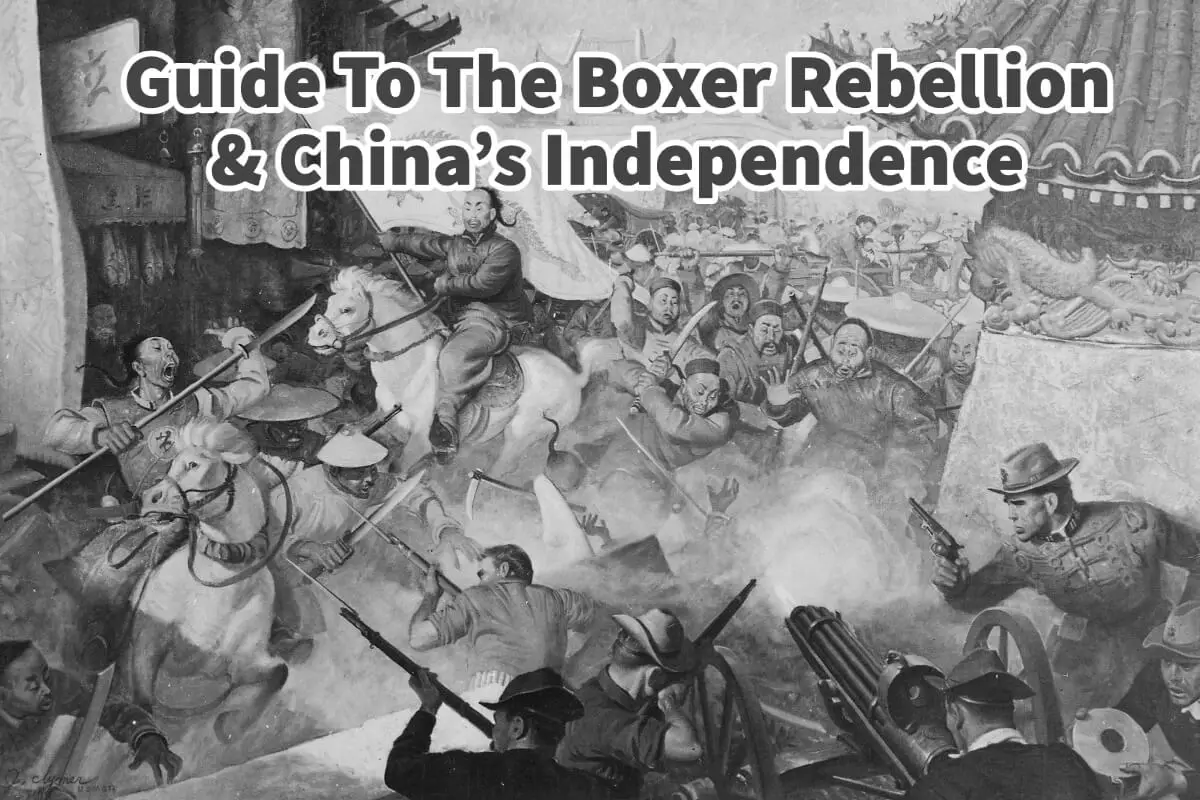An essential aspect of Chinese history that any foreigner living or working in China should understand is the Boxer Rebellion. The Boxer Rebellion was pivotal in China’s history and its relationship with foreigners.
The Boxer Rebellion was an uprising in China during the late 19th Century. A secret Chinese society known as the boxers was formed; their main goal was to drive all foreign influences from Chinese soil. The fighters were motivated by a belief that foreigners had overstepped their bounds within China and were depriving many of the Chinese people of their culture and rights.
Table of Contents
- What Is The Box Rebellion?
- The Chinese Boxer Rebellion And Its Impact On China
- The Boxer Rebellion And Christian Missionaries
- The Boxer Rebellion’s Importance Today
- Related Questions
What Is The Box Rebellion?
The Boxer Rebellion was a rebellion that was started in 1899 and lasted until 1901; it was a Chinese rebellion by a secret society of rebels, who are known as the boxers. The main goal of these boxers was to drive out all foreign influences from Chinese soil.
The boxers believed that foreigners had overstepped their bounds and that having foreigners in Chinese sovereign territory deprived the local people of their rights. Their fierce fighting campaign lasted two years, and the violence targeted foreigners living and working in China.
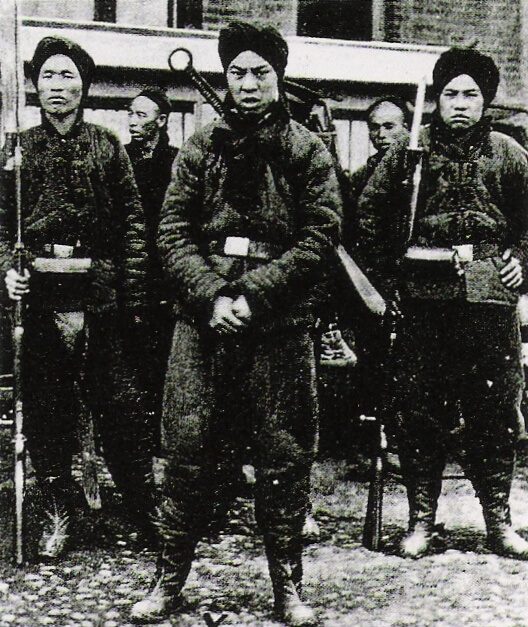
One of the main groups targeted by the boxer rebels was the foreign missionaries. They saw these missionaries as representing the foreign powers within China.
During this time, the boxers began to target many Christians and their churches, as well as foreign embassies, businesses, and establishments. The rebellion started to become so bad that an international coalition of forces was formed; this international coalition of foreign troops crushed the boxer rebellion. The boxes were finally defeated by the multinational forces of 1901, but this did not necessarily stop many Chinese from feeling that foreigners were taking over their society and culture.
The Chinese Boxer Rebellion And Its Impact On China
Even though this multinational foreign force eventually defeated the boxes, the boxer rebellion still profoundly impacted China’s history and its relationship with the rest of the world. The boxer rebellion was instrumental in leading to a period of greater China’s independence from foreigners.
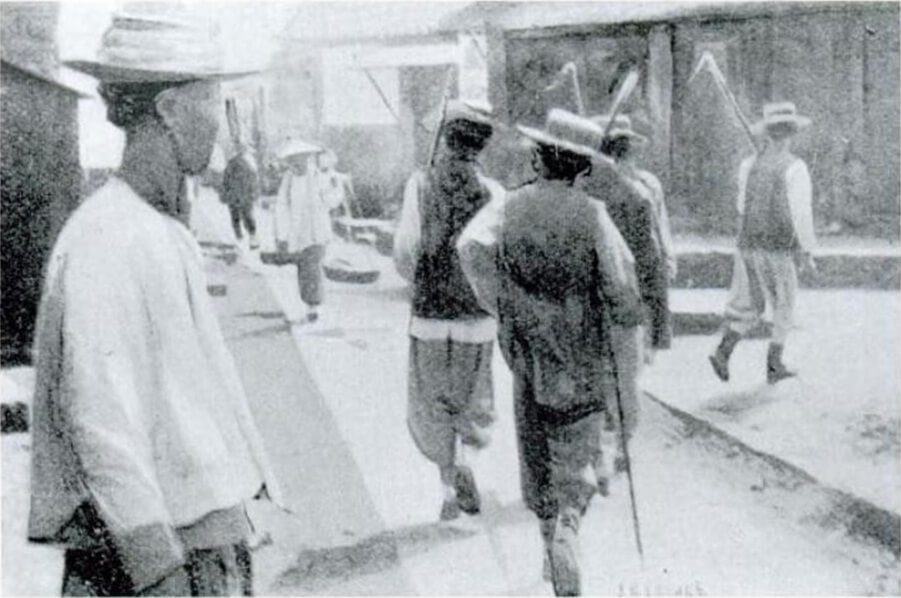
The Boxer Rebellion pave the way for China to reduce its influence on foreign powers and to become a more sovereign state. It also allowed the nationalist sediment within China to rise, which continued well into the 20th Century and is even present in China today.
Even today, when many foreigners travel to China, they may be surprised at how nationalistic many Chinese feel towards their country and how proud they are to be Chinese.
The Boxer Rebellion also showed how vital independence was for China and the Chinese people. The Boxer Rebellion helped the Chinese open more dialogue with foreign powers on issues such as trade and education.
The Boxer Rebellion also began to lead to a period of modernization within China that was propelled by China’s desire for complete sovereignty.
The Boxer Rebellion And Christian Missionaries
Even though the Boxer Rebellion was against all types of foreign influence within China, there is no doubt that one of the groups that suffered the most was the Christian missionaries living and working within China. Many of these missionaries lost their lives during the Boxer Rebellion.
The lives of these Christian missionaries in China were in constant danger. Despite the risk to their safety, many of these missionaries would not leave China and instead wanted to show solidarity with the Chinese people.
Christian churches were also targeted, as were some Chinese who were Christians; many boxers saw these Chinese as traitors to China as they felt they were giving the foreigners power within China.
The Boxer Rebellion’s Importance Today
The boxer rebellion is still essential for us to remember today because it was a necessary part of Chinese history and culture. The Boxer Rebellion shows the power of the people to stand up against foreign forces and the importance of nationalism in China’s modern-day history.
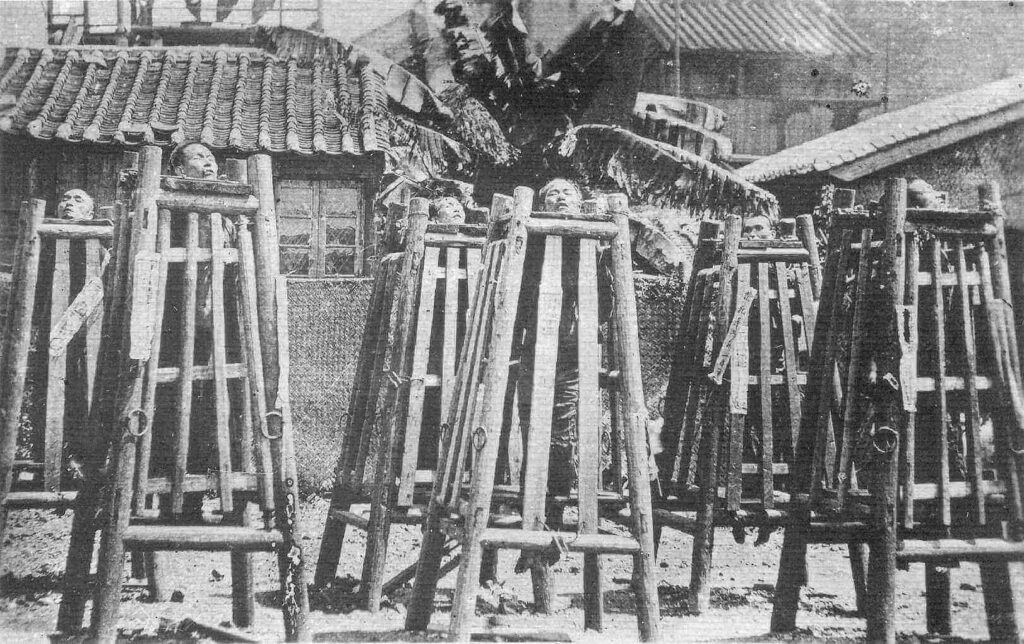
The Boxer Rebellion has continued to inspire generations of Chinese citizens to be very proud Chinese. That is why many within China do not like to see foreigners trying to meet within what is considered domestic Chinese affairs, and they should allow the Chinese to handle it in their way.
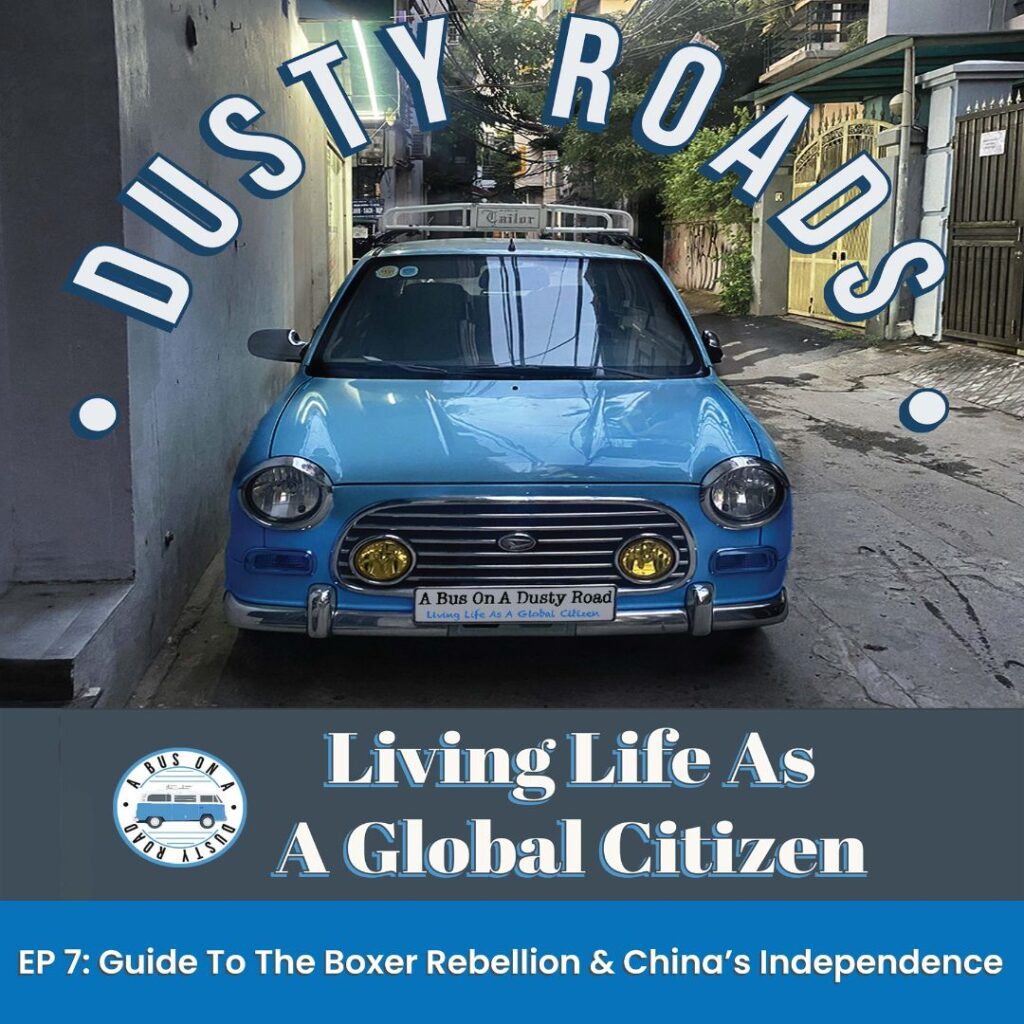
Listen To Our Podcast About Guide To The Boxer Rebellion & China’s Independence below or by clicking here.
It can also be why sometimes, many in the west may think that the Chinese government doesn’t seem to care what foreign powers think about what China is doing. This is because the Chinese see themselves as a completely sovereign nation and do not trust or care what the western world thinks about them.
When I tell my Chinese friends that this is what the western press is saying about a specific issue within China, many will say, “they do not trust what the western news says about China.”
The Boxer Rebellion set a precedent that the Chinese should not trust the west. The Boxer Rebellion shows China’s ability to be independent while simultaneously resilient; most Chinese are proud of the boxers who stood up against foreign powers for the sake of China.
The Boxer Rebellion also shows us the importance of trying to have cultural and political bridges of understanding between two different groups of people.
For anyone living and working in China, it is good to understand the Boxer Rebellion and how many Chinese viewed foreigners as adversaries’ Understanding the Boxer Rebellion may help clarify how some of the Chinese continue to view foreign interference withiin China.
At A Bus On A Dusty Road, we talk about everything about culture, travel, life, sailing, and ex-pat living. We are all about “Living Life As A Global Citizen.” We explore social, cultural, and economic issues and travel.
We would love to have you be part of our community. Sign up for our newsletter to keep up-to-date by clicking here. If you have any questions, you can contact me, Anita, by clicking here.
Listen to our Podcast called Dusty Roads. You can find it on all major podcast platforms. Try out listening to one of our podcasts by clicking here.
Subscribe to our A Bus On A Dusty Road YouTube Channel with great videos and information by clicking here.
Related Questions
How Did The Great Wall Of China Impact The Silk Road?
The Great Wall of China helped protect many ancient traders along the Chinese Silk Road routes. The Great Wall was set up to protect China from a northern invasion, whereas the Silk Road opened up China to trade with the rest of the world, particularly with the Middle East and Europe.
By clicking here, you can discover How Did The Great Wall Of China Impact The Silk Road?.
Which Sea Lies At One End Of The Great Wall Of China?
The Laolongtou, or the Old Dragonhead, is part of the Shanhai Pass of the Great Wall of China that goes right into the Bohai Sea. Most people consider this to be the start of the Great Wall of China. The Shanghai pass has always been of crucial military significance for China as it helps to protect China’s important capitals, including Beijing.
By clicking here, you can discover Which Sea Lies At One End Of The Great Wall Of China?.
Is Hong Kong A Separate Country Or A Part Of China?
Hong Kong and China have basic laws similar to what we would in the United States consider our constitution or our rights as individuals and citizens of a country. The Hong Kong Basic Law clearly states that Hong Kong is part of China’s territory.
By clicking here, you can discover Is Hong Kong A Separate Country Or A Part Of China?.

